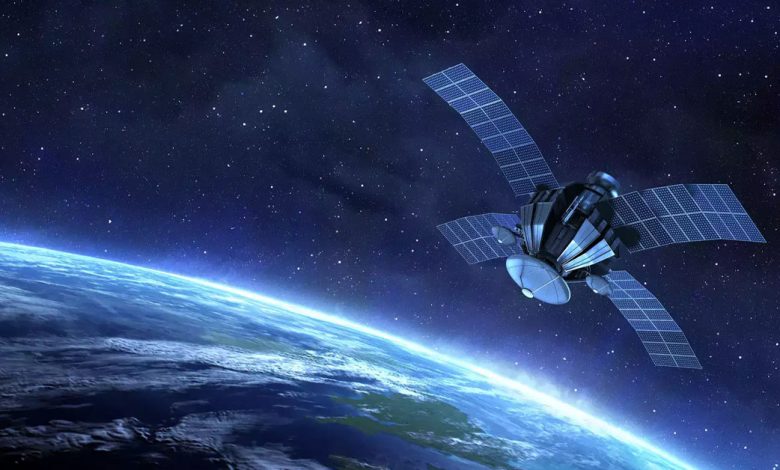
Context- In accordance with the Indian Space Policy for the year 2023, the Indian Space Research Organization (ISRO) will soon transfer its Small Satellite Launch Vehicle (SSLV) to the private sector in response to the rising demand for small satellites.
Key Highlights
- Indian Space Research Organization (ISRO)
-
-
- ISRO won’t do any operational and production work for the space sector. The NewSpace India Limited (NSIL) will take over the operational aspects of ISRO missions.
- ISRO will put most of its efforts into improving human comprehension of space and developing new space technologies and applications.
- IN-SPACe
- The Indian National Space Promotion and Authorization Centre, also known as IN-SPACe, will be an independent government agency.
- IN-SPACe will serve as the single point of contact for government and NGE authorization of space activities.
- The interface between ISRO and Non-Governmental Entities (NGEs) will be the INSPACe.
-
- New Space India Limited (NSIL)
-
-
- NSIL, the public sector undertaking under the Department of Space, will be answerable for commercializing space advances and stages made through open use.
- NSIL will make, rent, or obtain space parts, advances, stages and different resources from the private or public sector, on sound commercial principles.
- Non-Governmental Entities (NGEs)
- The establishment and operation of space objects, ground-based assets, and related services like communication, remote sensing, and navigation, among others, shall be permitted for NGEs to carry out complete activities in the space sector.
- NGEs are allowed to offer public and global space-based correspondence administrations, through self-claimed, acquired or rented Geostationary Orbits (GSO) and non-geostationary satellite orbits (NGSO) satellite frameworks. The term “NGSO” refers to satellites in low or medium earth orbits that provide broadband internet services from space.
- Ground facilities for the operation of space objects, such as telemetry, tracking, and command (TT&C) Earth Stations and Satellite Control Centres (SCCs), are encouraged to be established and operated by NGEs.
-
- Data to users
-
- Indian consumers of space technology or services, such as communication, remote sensing, data services, and launch services, may directly acquire data from any source, whether it comes from the public or private sector.
- ISRO will provide “free and open” access to all remote sensing data with a Ground Sample Distance (GSD) of 5 meters or greater. Government agencies will not be required to pay anything for access to GSD remote sensing data with a resolution of less than 5 meters, but NGEs will pay a reasonable price.
Indian Space Policy in 2023
- Background
- In April 2023, the Union Cabinet supported the Indian Space Policy 2023.
- Objectives:
- The Policy tries to institutionalise the private sector participation in the space sector and give a bigger support to explore, the scholarly community, new businesses, and industry. It additionally outlined the jobs and obligations of ISRO, space area PSU NewSpace India Restricted (NSIL) and Indian Public Space Advancement and Approval Center (IN-SPACe).
- Through specific policy directives, the Department of Space (DOS) will serve as the central department for this Policy’s implementation.
- Applicability:
- Any space activity going into or out of Indian Territory or within India’s jurisdiction, including the area up to its exclusive economic zone, is covered by this policy.
Comment: Need For Space Changes
- The approach gives the truly necessary clarity on all space exercises particularly with respect to space communication and different Applications. The space economy opportunity for the nation will be driven by the policy, which will increase private industry participation.
- At the moment, the value of the global space economy is approximately 360 billion USD. India’s share of the space economy is only about 2%, despite the fact that it is one of the few countries in the world that are spacefaring.
- Private companies like SpaceX, Blue Origin, Virgin Galactic, and Arianespace have revolutionized the space industry by reducing costs and turnaround times over the past two decades in other countries that are interested in space travel.
- However, vendors and suppliers to the government’s space program have been the only players in India’s private space industry. Consequently, there was a need to give scope for Non-Governmental Entities (NGEs) for improved cooperation in the Indian space program and helping India’s piece of the pie in the Worldwide Space Economy.
- In spite of the fact that, by 2020, the Public authority of India opened the entryways for improved support of NGEs in space, there was a need to give administrative conviction to space exercises by different partners, to make a flourishing space environment.





.png)



